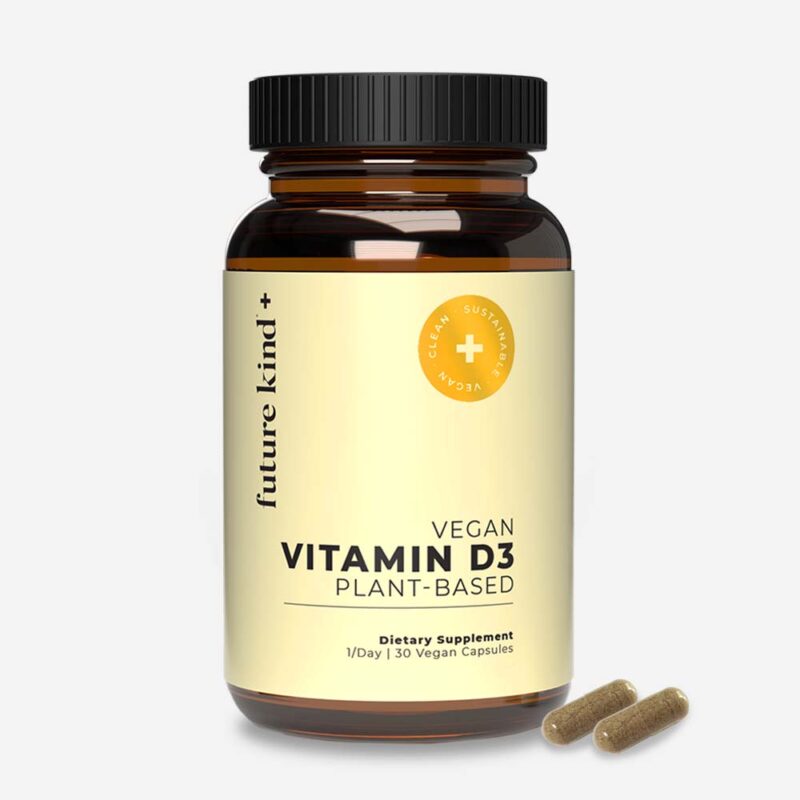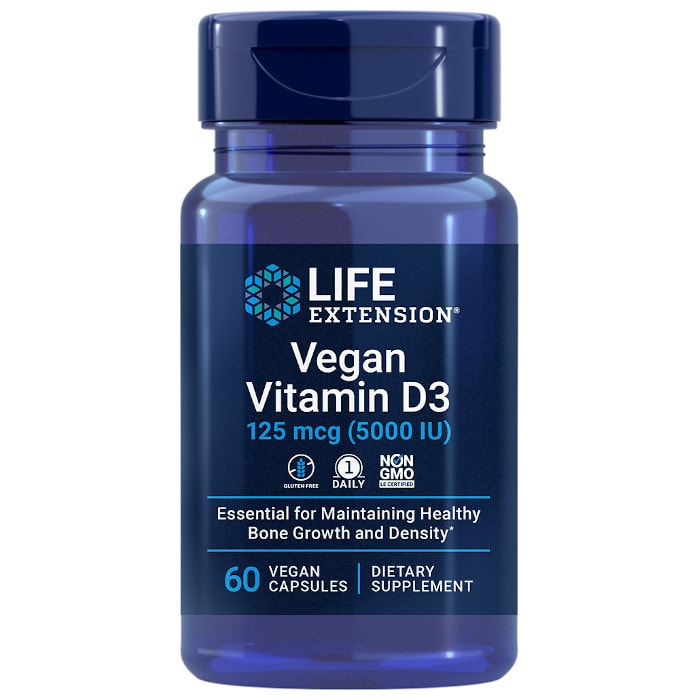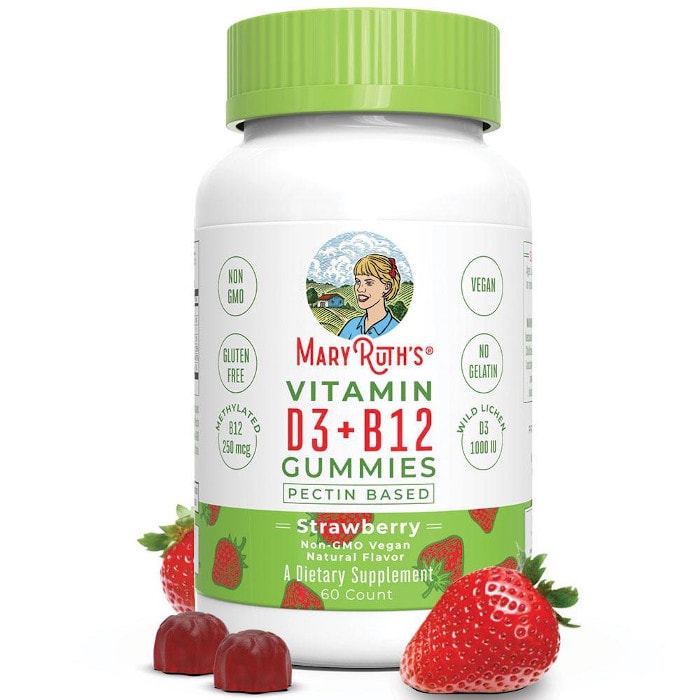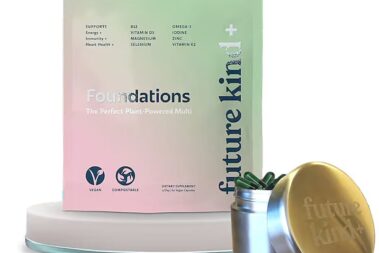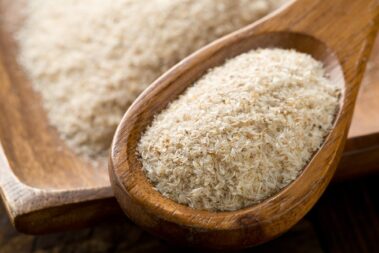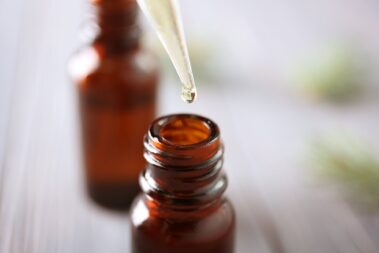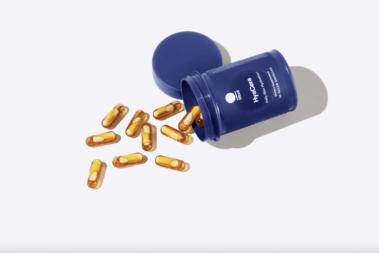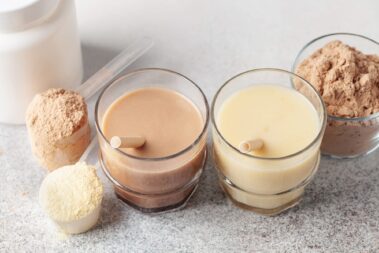If you’re concerned about not getting enough vitamin D in your vegan diet, or you know your levels are low, a supplement may help. You may consider taking a multivitamin, or there are plenty of vegan-friendly vitamin D supplements.
Below are 7 of the best vegan vitamin D supplement options.
Table of Contents
Our Picks at a Glance
- Best Overall: Future Kind Vegan Vitamin D3 Supplement
- Best Capsules: Life Extension Vegan Vitamin D3 Capsules
- Best Gummy: MaryRuth’s Vegan D3 + B12 Gummies
- Best with Prebiotic: Ora Organic Plant-Based Vitamin D3
- Best Spray: Garden of Life myKind Organics Vitamin D3 Spray
- Best High-Dose: MRM Vegan Vitamin D Capsules
- Best Liquid: Nordic Naturals Plant-Based Vitamin D3 Liquid
What to Look for in a Vitamin D Supplement
While there are many vitamin D supplements on the market, most aren’t vegan. How can you tell, and what else should you look for? Here are some things to keep in mind.
- D3 vs. D2. If possible, look for vitamin D3 instead of D2. While D2 is naturally plant-derived, it’s not as effective at raising blood levels of vitamin D. On the other hand, most D3 products are derived from lanolin, wax produced by sheep’s wool. The optimal choice is a vitamin D3 supplement that has been made from a vegan source, like lichen. Be sure to read the ingredient label to determine whether the D3 is vegan.
- Appropriate dosing. The Endocrine Society recommends most adults take at least 600 IU of vitamin D per day for maintenance, or 1,500-2,000 IU per day to correct a deficiency. It’s best to have your vitamin D levels checked to determine the appropriate dosage. They also recommend not taking more than 4,000 IU per day without medical supervision due to risk for toxicity.
- Pectin vs. Gelatin. Even if you’ve found a D3 made using lichen, avoid gummies made using gelatin as this is not a vegan ingredient. Instead, pectin is a vegan alternative used to make many gummies.
- Third-party testing. Whenever possible, look for supplements that bear a third-party testing seal from places like NSF International, Consumer Lab, or USP. This indicates the product has been independently verified to be free from harmful levels of contaminants and contains what it claims to.
It may not be possible to find a supplement that checks all of these boxes, so choose the one that meets your needs best.
Before adding any supplements to your routine, consult with a qualified healthcare provider to ensure the one you choose is the right fit for your needs.
The Best Vegan Vitamin D3 Supplements
1. Future Kind Vegan Vitamin D3 Supplement
These capsules contain vitamin D3 made from lichen, and the only other ingredients are vegetable cellulose and rice flour. Just one capsule provides 2,500 IU of vitamin D.
Future Kind also uses sustainable packaging, with every order contributing a donation to help rescue abused farm animals.
2. Life Extension Vegan Vitamin D3 Capsules
This is a lichen-derived vitamin D3 that offers 125 mcg, or 5,000 IU, of vitamin D per capsule. It’s gluten-free and non-GMO.
Keep in mind that this is a high dose, and is not recommended for maintenance or to be used for a prolonged period. This type of dosing may be appropriate for correcting a deficiency under medical supervision, or as otherwise instructed by your healthcare provider.
3. MaryRuth’s Vegan D3 + B12 Gummies
This is a nice combination of D3 and B12, two important nutrients on a vegan diet. They’re made using lichen and methylcobalamin, a highly bioavailable form of B12. Additionally, their gummies are made using pectin, a fruit-based vegan alternative to gelatin.
One gummy provides 1,000 IU of vitamin D and 250 mcg of vitamin B12. Note that this product contains cane sugar, which contributes 1 gram of added sugar to each gummy.
4. Ora Organic Plant-Based Vitamin D3
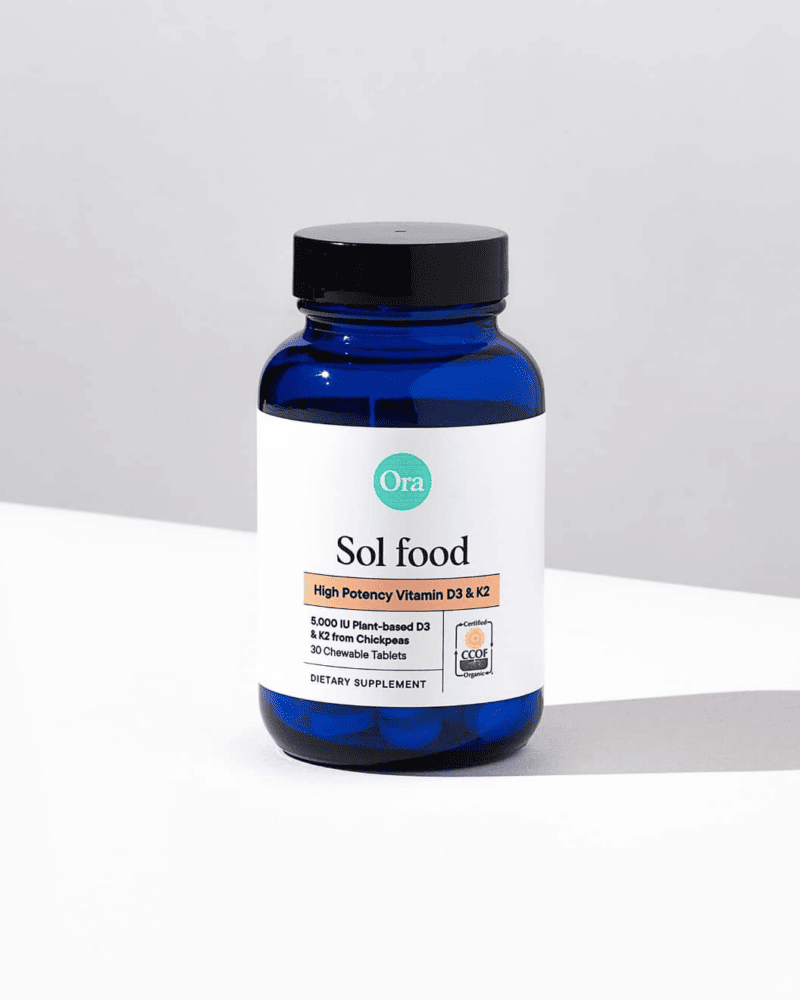
Many Vitamin D3 supplements are made from the grease secreted from sheep’s wool that’s processed to produce synthetic Vitamin D3. In contrast, our USDA Organic Vitamin D3 Tablets are made sustainably — and simply — from lichen, a symbiotic relationship between a fungus and an alga. These little lichens are one of the only plant-based sources of the more highly bioavailable Vitamin D3. Scientists think that these lichens create Vitamin D3 in response to UVB exposure, the same way that our skin creates Vitamin D from the sun.
One tablet contains 2,000 IU of vitamin D. While it doesn’t bear a third-party testing seal, Ora offers their certificate of analysis and detailed testing information on their site.
5. Garden of Life myKind Organics Vitamin D3 Spray
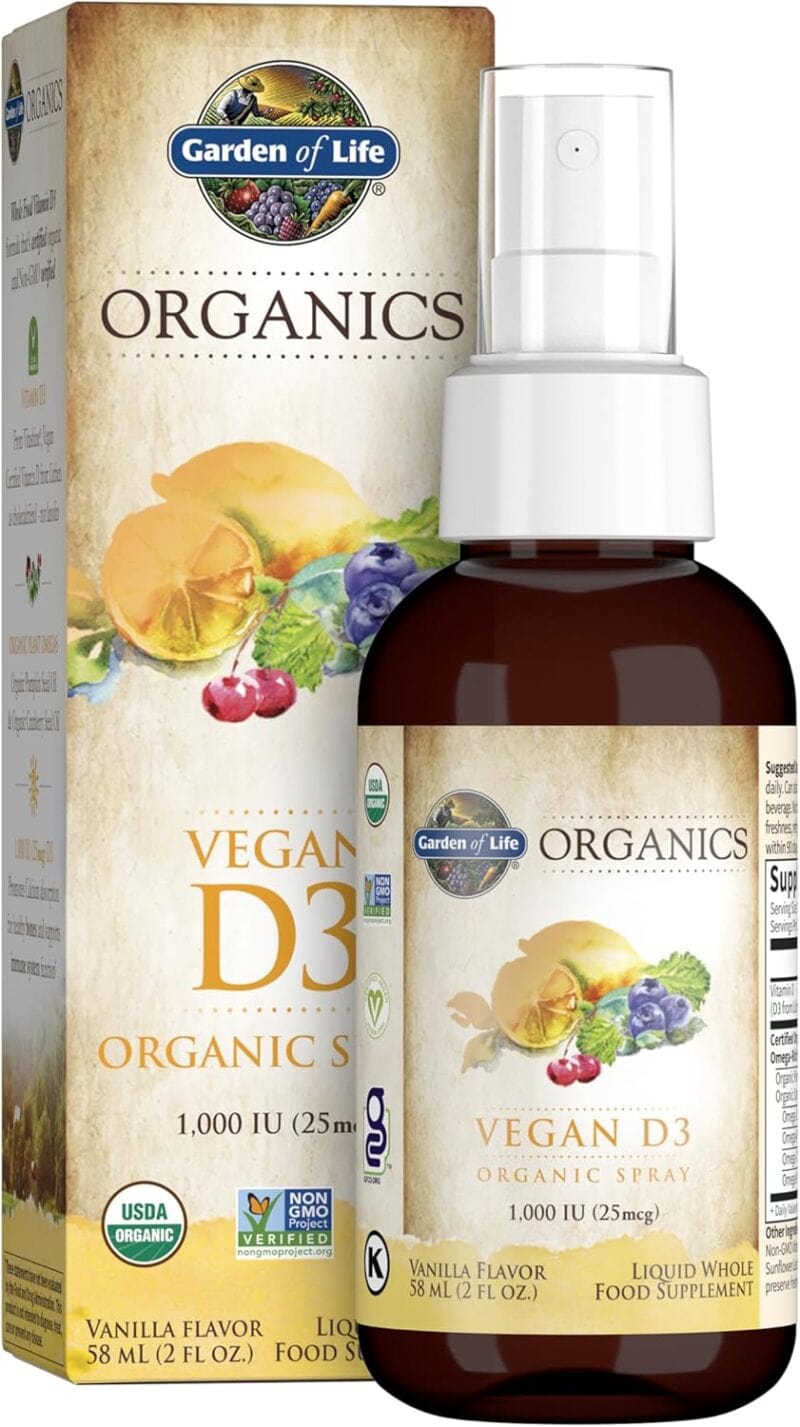
Looking for an alternative to tablets, capsules, or gummy vitamins? Try this vanilla flavored, lichen-derived D3 spray.
One spray provides 1,000 IU of vitamin D. This product also contains a certified organic omega-3 rich blend, providing an array of unsaturated fatty acids from pumpkin and cranberry seed oils.
It’s USDA Organic, Non-GMO Project Verified, and certified vegan and gluten-free, with no synthetic binders or fillers.
6. MRM Vegan Vitamin D Capsules
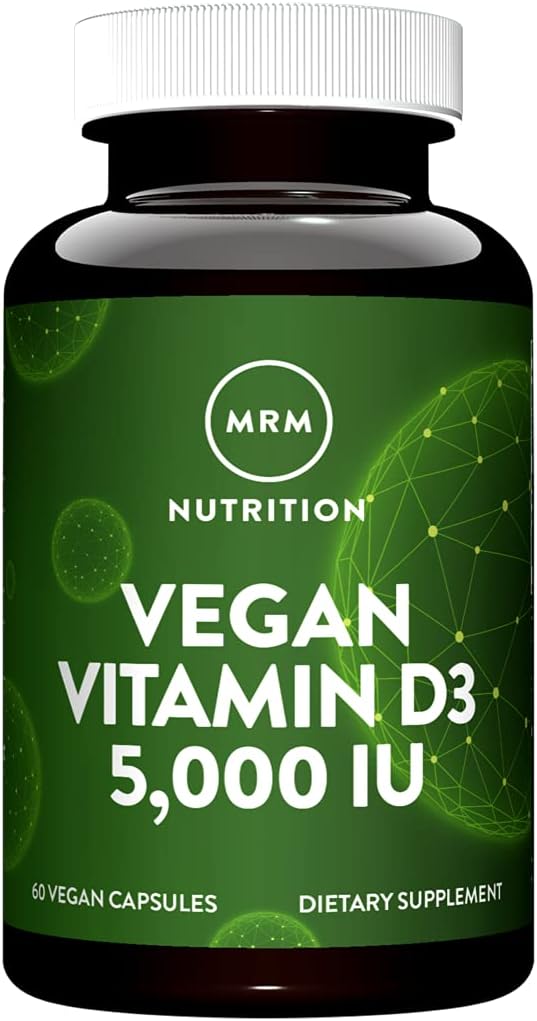
This is a high-dose vitamin D3 derived from lichen. It provides 125 mcg, or 5,000 IU, or vitamin D per one capsule. It’s Non-GMO Project Verified and gluten-free. The only other ingredients are tapioca dextrin, rice flour, and vegetable cellulose.
Rather than for long-term maintenance, this high dose product may be most appropriate for individuals with confirmed vitamin D deficiency and should only be used under medical supervision.
7. Nordic Naturals Plant-Based Vitamin D3 Liquid
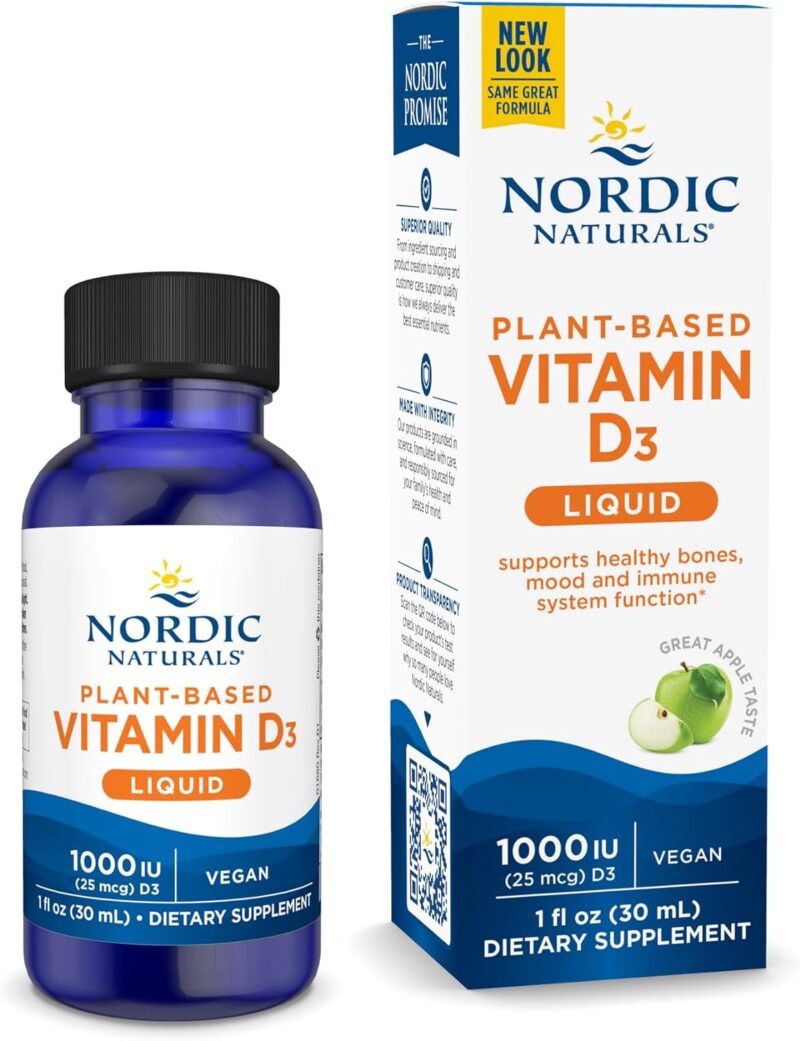
This is another nice liquid option for those wanting an alternative to tablets and capsules. It’s dosed using a liquid dropper, which contains 1,000 IU of vitamin D per 0.50 mL.
The only other ingredients are medium chain triglycerides from coconut oil, natural apple flavor, and alpha-tocopherols, a natural antioxidant.
Ask a Dietician
Wondering if you need a vitamin D supplement? Let our registered dietician help guide you to that answer and through many more vitamin D-related queries.
Do vegans need to take a vitamin D supplement?
If you’re wondering whether vegans need to take a vitamin D supplement, the answer is that it depends, but many benefit from doing so.
Vegan or not, the best way to determine whether you should take a vitamin D supplement is to have your blood levels checked. This will provide a baseline and tell you whether it makes sense to take a maintenance dose or a correctional dose for a deficiency. It will also tell you if your levels are higher than normal range, in which case a supplement wouldn’t be warranted.
What are the signs of vitamin D deficiency?
The signs of vitamin D deficiency can be so subtle that many people don’t realize they have one. While symptoms can vary, some of the potential signs of a vitamin D deficiency may include:
– Getting sick more often. Vitamin D is heavily involved in your immune function and ability to fight off infections.
– Feeling more tired than usual. Vitamin D deficiency has been associated with fatigue for many people.
– Experiencing new bone, muscle, or back pain. Having enough vitamin D is needed for calcium absorption and bone metabolism, and a deficiency may be linked to growing pains.
– Feeling down. Vitamin D deficiency has been associated with an increased risk for depression, particularly among adults.
– Hair loss. Some studies have found an association between vitamin D deficiency and alopecia.
Vitamin D2 vs. D3: What’s the difference?
The main difference between vitamin D2 and vitamin D3 is that D2 (ergocalciferol) is derived from plants, whereas D3 (cholecalciferol) has long been found only in animal sources like lanolin, an oil produced in sheep’s wool (that is, until lichen-derived D3 became commercially available!). D2 is more commonly found in fortified foods and is cheaper to produce.
D3 is the active form of vitamin D, meaning your body doesn’t have to convert it. Research also shows that D3 is more effective at raising blood levels than D2.
Can veganism cause vitamin D deficiency?
Vitamin D deficiency can be a risk of any type of diet that lacks adequate food and/or supplemental sources, particularly if the individual also doesn’t get enough sun exposure.
A vegan diet is generally low in natural food sources of vitamin D. The 2003 EPIC-Oxford Study found that vegans have a lower intake of vitamin D than vegetarians and omnivores. It’s best to get your blood levels checked to get an idea of whether you’re at risk for deficiency.
FAQ
This depends on your baseline blood levels, as the appropriate amount to take varies. Some research suggests that most healthy adults may benefit from a supplemental source of vitamin D that provides at least 600 IU per day for maintenance. More is likely needed to correct a deficiency, in which case recommendations will be made by your doctor.
There are minimal natural plant sources of vitamin D. However, many plant milks are fortified with this nutrient, so be sure to read the nutrition label. Certain mushrooms grown with UV light also provide some vitamin D, but these aren’t always easy to find.
You may be able to get enough vitamin D from the sun if you practice regular safe exposure, but many factors are also involved in how efficiently your body synthesizes it. Some of these include age, sex, skin pigmentation, and your geographic location. The best way to know whether your current lifestyle is adequate is to get your blood levels checked.
Vegan vitamin D3 is extracted from lichens, organisms that exist as a natural symbiosis between fungi and algae.
Other Supplements to Consider
A healthy vegan diet can supply most of the nutrients you need to thrive. But some vitamins and minerals are notoriously difficult to get enough of no matter what you eat. Depending on your needs and eating habits, it may be a good idea to supplement these important nutrients.
Here are a few articles to help you find the best vegan vitamin and mineral supplements to meet every need.
- 11 Best Vegan B12 SupplementsTop 5 Vegan
- 7 Best Vegan Calcium Supplements for Bone Health
- Men’s Multivitamins for All Ages
- 7 Best Vegan Iodine Supplements
- 6 Best Vegan Iron Supplements
- 12 Best Vegan Multivitamins
For more vegan eating tips and supplement recommendations, sign up for our newsletter. We’ll send you exclusive clean, green, simple content each week.
What’s the Best Vegan Vitamin D Supplement?
In our opinion, Future Kind Vegan Vitamin D3 Supplement is one of the best you’ll find. This pure lichen-based supplement has only three natural ingredients and is made with sustainable packaging and business practices.
What is your favorite vitamin D supplement? Let us know by posting in the comments section below!
- 11 Best Vegan B12 Supplements for 2023 - June 16, 2023
- 6 Best Vegan Kids Vitamins of 2024 - May 23, 2023
- 5 Best Vegan Digestive Enzyme Supplements for 2023 - May 25, 2022


